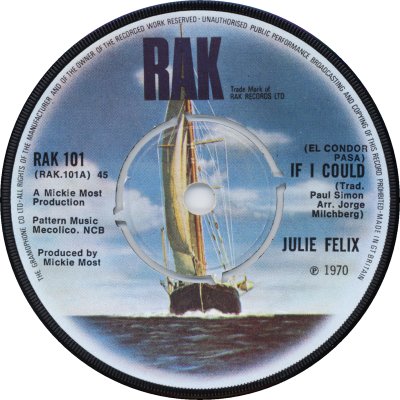
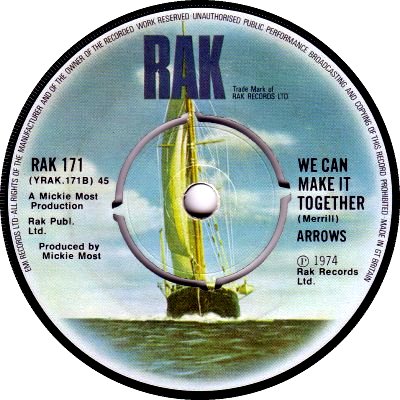
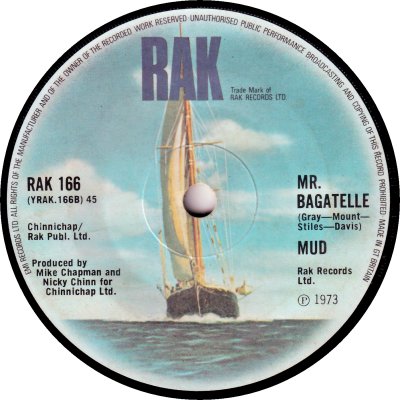
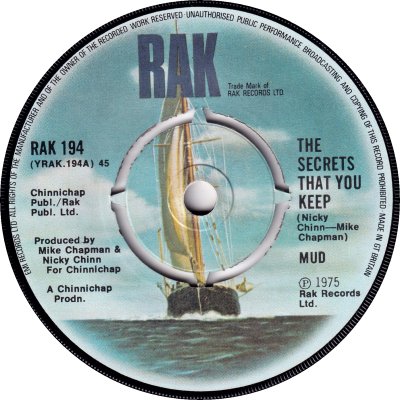
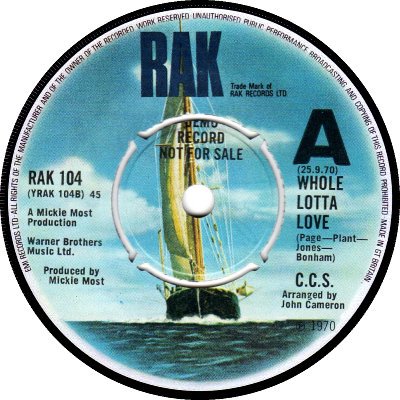
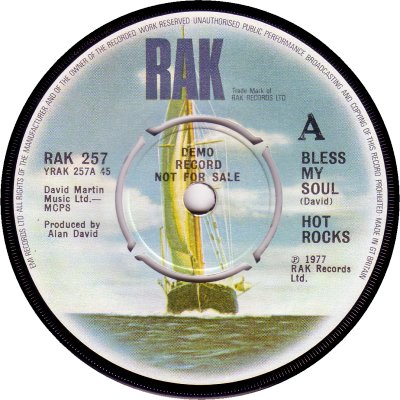
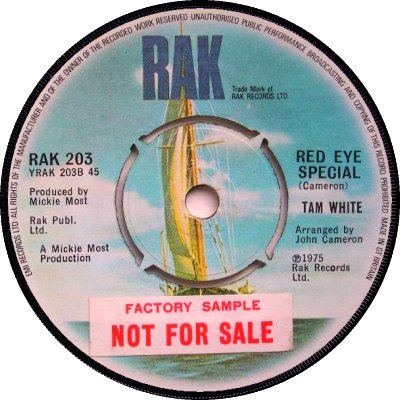
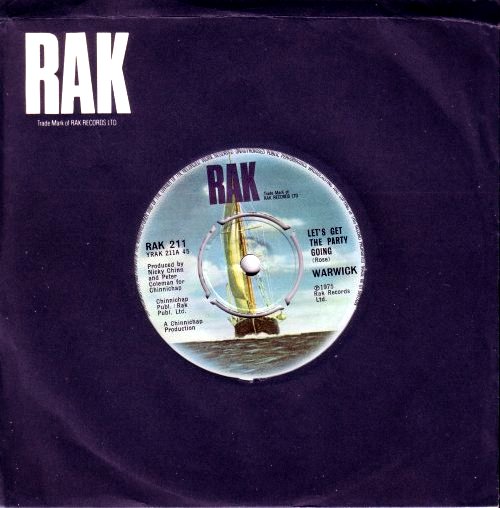
A phenomenally successful independent company, started in 1969 by producer Mickie Most and manager Peter Grant. Peter Noone, Julie Felix and New World gave Rak early hits, but it was only in the Glam era that the label really got into its stride. Staff songwriters Nicky Chinn and Mike Chapman struck an astonishing vein of form from around 1972 to 75 and helped artists such as Mud and Suzi Quatro to make some classic Glam singles. Mud enjoyed eleven hits with Rak, five of them entering the Top Ten and three more getting to No.1; Suzi Quatro scored more hits for the company - thirteen - but had fewer Top Ten records and No.1s (three and two respectively). Arguably Rak's most successful band in the second half of the '70s was Smokie, who had twelve hits between 1975 and 1980; six of them reached the Top Ten but none quite made it to the top spot. For sheer longevity and consistency, however, nobody came near Soul / Pop / Disco band Hot Chocolate, who registered in the Top 75 every year from 1970 to 1984 and had thirty-one Chart singles during that period, including eleven Top Ten hits and a sole No.1 in 'So You Win Again' b/w 'A Part Of Being With You' (RAK-259; 5/77). C.C.S., Cozy Powell, Kenny and Arrows also made repeated visits to the Chart, and the likes of Kandidate and Exile kept the hits coming for the label in the late '70s. Kim Wilde took over as Rak's chief hit-maker in the early '80s, but she moved on after the company was sold to EMI in 1983. Rak's output was aimed firmly at the Commercial Pop market but it made forays into genres such as Disco, Soul and Rock, albeit usually with a Pop slant.
Considering how successful it was, Rak didn't receive many mentions in the Trade press. 'Record Retailer' of the 14th of March noted that its first single would be available that week, through EMI, and 'Music Week' of the 9th of March 1974 observed that copies of Suzi Quatro's 'Devil Gate Drive' were being pressed by EMI in Waterford because of the current three-day week and a shortage of manufacturing capacity, but that seems to have been the lot as far as the 1970s are concerned. Rak's records were manufactured and distributed by EMI through a licensing agreement, and from January 1977 the company came under the wing of EMI's new Licensed Labels Division ('MW', 8th January). There was something of a hiatus when that division closed, which it did in January 1980; from the end of that month Rak was put into the care of EMI's recent acquisition Liberty / United Artists, along with Motown, Bronze, Hurricane, MAM, Source, Stax and Fantasy. After a period of confusion, however, things appear to have settled down,
Rak's singles were numbered in a RAK-100 numbering series, and more than two hundred and fifty of them were issued. The label design remained basically the same throughout, but there was a minor change in the perimeter text in October 1973 when the reference to 'The Gramophone Co.' at 8 o'clock (1) was altered to read 'EMI Records' (2) - a similar change took place on most of the EMI group labels. RAK-159 seems to have been the first single to have the new text, though demo copies continued to have the old text for a while, presumably using up old stock. Demo copies had the usual EMI-family markings (5, 6), and 'Sample' stickers were also used (7) - thanks to John Timmis for that scan. Custom pressings of popular singles sometimes led to records having non-EMI pressing marks: Linguaphone pressings had steep bevels and a 25mm 'island' around the spindle hole (3), while Decca had comparatively wide dinking perforations, sometimes accompanied by 'Polo mints' around the hole (4). There was an occasional series of reissues of old Mickie Most / Rak hits; they appeared from 1972 onwards, on the Rak Replay label (q.v.), and were numbered in the RR-0s. The discography which follows only covers the 1970s.



Copyright 2008 Robert Lyons.

